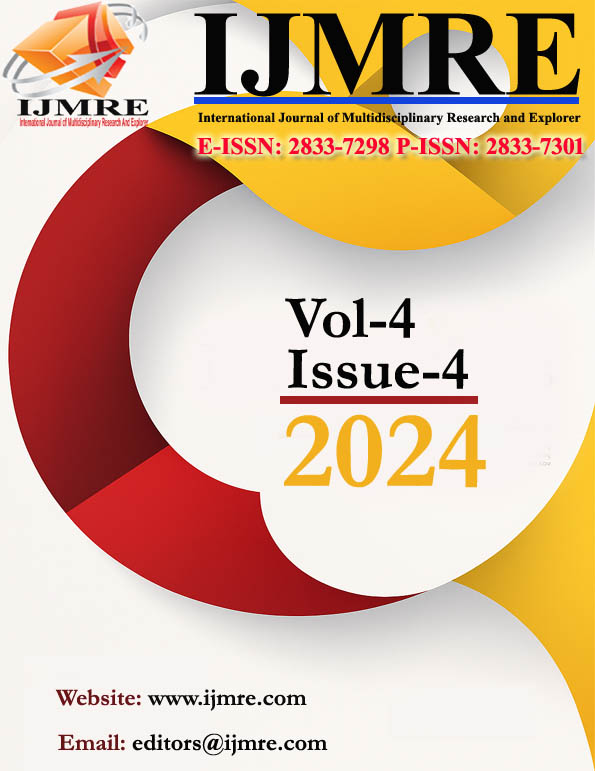The Perceptions on Usage of Electronic Fiscal Devices among Small Business Owners in Tanzania
DOI:
https://doi.org/10.70454/IJMRE.2024.40404Keywords:
Electronic Fiscal Devices, Small Business Owner, TanzaniaAbstract
the use of Electronic Fiscal Devices (EFDs) appears to be a current innovation that is broadly promoted for effective revenue collection not only in Tanzania but also in worldwide. This study examined the perceptions on usage of electronic fiscal devices among small business owners in Tanzania. The study adopted cross-sectional survey research design whereby primary and secondary data were used. The population applied on the 152 small business owners (small restaurants owners). The sample size of the study was 110 small restaurants owners. Dodoma City was purposively sampled to be used as a study area of this research and random sampling procedure was used to pick small restaurants owners in Dodoma City. Results revealed that EFDs usage in term of number of years among small restaurants owners was positively and significantly influenced by perceived usefulness of EFDs and perceived ease of use respectively; with P- Value of 0.0439. The study recommends that the government is advised to resolve the dependence challenge of EFDs on electricity, to develop sustained training and taking required measures for the learner restaurants to ensure that they observe rules and regulations mostly on the use of EFDs but not limited to tax compliance only.References
[1] Agatha, J.,”Assessing Factors Hindering Taxpayers on the Use of Electronic Fiscal Devices (EFDs) In Tanzania,“ Doctoral Thesis, Mzumbe University, pp. 23-76, 2018.
[2] Azmi, A. A. C., and Kamarulzaman, Y., “Adoption of Tax E-Filing: A Conceptual Paper, “African Journal of Business Management, vol. 4, no. 5, pp. 599–603, 2010.
[3] Byabato, W., “Perceptions and Adoption of Using Electronic Fiscal Devices among Entrepreneurs : a Case of Dodoma Municipality,” Masters Dissertation, The University of Dodoma, pp.3-79, 2017.
[4] Chege, A., Kiragu, N., Lagat, C., and Muthoni, G, “Effect of Electronic Fiscal Devices on VAT Collection in Tanzania: A Case of Tanzania Revenue Authority,” European Journal of Business and Management, vol. 7, no.33, pp. 125– 133, 2015.
[5] Christian, A., “Factors Influencing Taxpayers’ Voluntary Compliance with the Tax System in Tanzania: A Case of Tanzania Revenue Authority in Kariakoo Tax Region,” Masters Dissertation, Mzumbe University, pp. 2-87, 2019.
[6] Eilu, E., “Adoption of Electronic Fiscal Devices (EFDs) for Value-Added Tax (VAT) Collection in Kenya and Tanzania: a Systematic Review,. African Journal of Information and Communication, vol. 22, no. 1, pp. 11–134, 2018.
[7] Kaisi, C., “Assessing the Adoption of Electronic Fiscal Devices (EFDs) in Increasing Revenue Collection: A Case of Kinondoni Municipality Tanzania,” Masters Dissertation, Mzumbe University, pp.4-66, 2019.
Downloads
Published
Issue
Section
License
Copyright (c) 2024 Emmanuel Magese (Author)

This work is licensed under a Creative Commons Attribution 4.0 International License.
This is an Open Access article distributed under the term's of the Creative Common Attribution 4.0 International License permitting all use, distribution, and reproduction in any medium, provided the work is properly cited.







